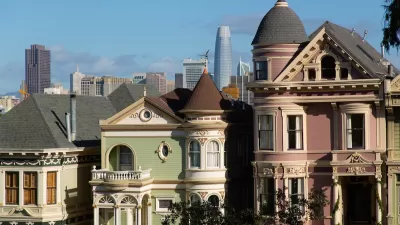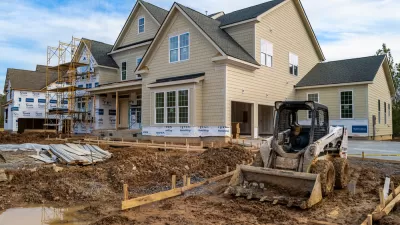Greetings from Manila where I'm attending the Asian Development Bank's Transport Forum 2012. It is an exciting and important event: the types of transport planning investments that the bank supports now can have huge impacts on the nature of future.
Greetings from Manila where I'm attending the Asian Development Bank's Transport Forum 2012. It is an exciting and important event: the types of transport planning investments that the bank supports now can have huge impacts on the nature of future development in the world's fastest growing countries. This is an opportunity to support truly sustainable development.
Development banks have been criticized in the past for favoring automobile-oriented projects such as new urban highways, but their policies are changing to favor alternative modes, including walking, cycling and public transport. It is truly a paradigm shift; a change in the way problems are defined and solutions evaluated. Its exciting to be involved.
For example, yesterday's theme was traffic safety. The ADB gave a presentation which reflected the old traffic safety paradigm: that traffic accidents result from special risks, such as drunk driving and faulty vehicles, which safety programs should target. This approach has some merit but ignores the inherent risk associated with motor vehicle travel, and the potential safety benefits of transportation demand management and smart growth policies. Fortunately the good folks at Embarq gave a great presentation on their research concerning the very large traffic safety benefits from transit oriented development in developing countries. Their transport modeling can actually predict the number of traffic deaths that can be avoided from transit-oriented development, rather than automobile-oriented sprawl, in rapidly expanding Asian cities. Similarly, I also attended workshops on healthy and socially inclusive (i.e., it helps physically and economically disadvantaged people) transport, all of which recognize the importance of non-motorized transport, efficient and affordable public transport, and smart growth development policies.
Of course, the devil is in the details. Policy changes are great, but these concepts must filter down to the day-to-day decisions made by practitioners: planners, engineers and economists. That is my role: I am presenting at professional development workshops in which we discuss exactly how to implement new approaches such as complete streets, transportation demand management and smart growth in developing country conditions.
There is tremendous enthusiasm and creativity among my colleagues in developing countries. It is also truly multi-cultural, people from all over the world, from every race and cultural background, work together in these meetings. It is stimulating, sometimes frustrating and very important. I am honored to be able to contribute.
For More Information
ADB (2009), Changing Course: A New Paradigm for Sustainable Urban Transport, Asian Development Bank.
Paul Barter (2010) Parking Policy in Asian Cities, Asian Development Bank. Also see www.slideshare.net/PaulBarter/barter-for-adb-transport-forum-2010.
Beijing Transport Demand Management aims to identify and evaluate suitable non-technical measures to reducing vehicle traffic and associated pollution emissions.
Daniel Bongardt, Dominik Schmid, Cornie Huizenga and Todd Litman (2011), Sustainable Transport Evaluation: Developing Practical Tools for Evaluation in the Context of the CSD Process, Commission on Sustainable Development, United Nations Department Of Economic And Social Affairs.
Andrea Broaddus, Todd Litman and Gopinath Menon (2009), Training Document On Transportation Demand Management, Sustainable Urban Transport Project.
CSE (2009), Footfalls: Obstacle Course To Livable Cities, Right To Clean Air Campaign, Centre For Science And Environment (www.cseindia.org).
DFID (2010), Children, Transport and Mobility in Sub-Saharan Africa: Developing a Child-Centred Evidence Base to Improve Policy and Change Thinking Across Africa, Department of International Development.
EMBARQ promotes environmentally and financially sustainable transport solutions to improve quality of life in cities.
GIZ (2011), Changing Course in Urban Transport- An Illustrated Guide, Sustainable Urban Transport Project (www.sutp.org) Asia and GIZ.
GIZ (2003-2012), Sustainable Transportation: A Sourcebook for Policy-Makers in Developing Countries, by the Sustainable Urban Transport Project – Asia (www.sutp-asia.org) and Deutsche Gesellschaft fur Technische Zusammenarbeit (www.gtz.de).
Institute for Transportation and Development Policy promotes socially equitable and environmentally sustainable transportation policies and projects worldwide.
ITDP (2012), Transforming Urban Mobility In Mexico: Towards Accessible Cities Less Reliant on Cars, Institute for Transportation and Development Policy (www.mexico.itdp.org).
ITDP (2012), El Coche Nos , Institute for Transportation and Development Policy (www.mexico.itdp.org) and Trek Films.
Santhosh Kodukula (2011), Raising Automobile Dependency: How to Break the Trend?, GIZ Sustainable Urban Transport Project.
James Leather, Herbert Fabian, Sudhir Gota and Alvin Mejia (2011), Walkability and Pedestrian Facilities in Asian Cities: State and Issues, Sustainable Development Working Paper, Asian Development Bank.
Frederik Strompen, Todd Litman and Daniel Bongardt (2012), Reducing Carbon Emissions through TDM Strategies - A Review of International Examples, Transportation Demand Management in Biejing (http://tdm-beijing.org/index.php) GIZ and the Beijing Transportation Research Centre.
UITP (2012), Better Urban Mobility in Developing Countries: Problems, Solutions and Good Practices, International Association of Public Transport.
UTTIPEC (2009), Pedestrian Design Guidelines: Don't Drive Walk, Delhi Development Authority, New Delhi.
UTTIPEC (2010), Parking Policy as a Travel Demand Management Strategy, Delhi Development Authority.
Wilbur Smith (2008), Traffic & Transportation Policies and Strategies in Urban Areas in India, Ministry of Urban Development.
Lloyd Wright (2009), Environmentally Sustainable Transport For Asian Cities: A Sourcebook, United Nations Centre for Regional Development.

Study: Maui’s Plan to Convert Vacation Rentals to Long-Term Housing Could Cause Nearly $1 Billion Economic Loss
The plan would reduce visitor accommodation by 25,% resulting in 1,900 jobs lost.

North Texas Transit Leaders Tout Benefits of TOD for Growing Region
At a summit focused on transit-oriented development, policymakers discussed how North Texas’ expanded light rail system can serve as a tool for economic growth.

Using Old Oil and Gas Wells for Green Energy Storage
Penn State researchers have found that repurposing abandoned oil and gas wells for geothermal-assisted compressed-air energy storage can boost efficiency, reduce environmental risks, and support clean energy and job transitions.

Santa Barbara Could Build Housing on County Land
County supervisors moved forward a proposal to build workforce housing on two county-owned parcels.

San Mateo Formally Opposes Freeway Project
The city council will send a letter to Caltrans urging the agency to reconsider a plan to expand the 101 through the city of San Mateo.

A Bronx Community Fights to Have its Voice Heard
After organizing and giving input for decades, the community around the Kingsbridge Armory might actually see it redeveloped — and they want to continue to have a say in how it goes.
Urban Design for Planners 1: Software Tools
This six-course series explores essential urban design concepts using open source software and equips planners with the tools they need to participate fully in the urban design process.
Planning for Universal Design
Learn the tools for implementing Universal Design in planning regulations.
Ascent Environmental
Borough of Carlisle
Institute for Housing and Urban Development Studies (IHS)
City of Grandview
Harvard GSD Executive Education
Toledo-Lucas County Plan Commissions
Salt Lake City
NYU Wagner Graduate School of Public Service






























